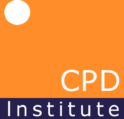CPD Career Compass: Every day is a CPD Day
Naveen Seelam
on
April 9, 2024
There is a constant upgrade to almost everything we do in our lives, the mobiles we use, the clothes we wear, the coffee we drink, and the media platforms we consume data. There’s always a new model or a new upgrade to everything we use in our daily lives.
Then, there is this constant question, Does the learning stop after graduation?? Achieving a degree in Engineering, Arts or Marketing is surely an achievement to be proud of. But does it stop right there??
Guiding towards New Directions
Achieving a satisfying career journey isn’t just about the qualifications we hold; it’s about continuously evolving and growing. That’s where Continuing Professional Development (CPD) steps in – as our compass guiding us towards greater success.
The CPD Career Compass is a monthly webinar focused on How everyone can upgrade themselves in their professional career by focusing on relatively small tasks daily.
In our first-ever webinar, we have dived deep into the realm of CPD, exploring its significance in shaping our professional trajectory.
We uncovered real-life stories of triumph, showcasing the transformative impact CPD has had on individuals just like us.
Every day is a CPD day!!
Every day is an opportunity to learn something, and Every day is an opportunity to upgrade ourselves both personally and professionally.
According to our recent research, professionals and students alike are missing out on approximately 4 hours of CPD each month. That’s over 50 hours of valuable learning in a year that often goes unacknowledged.
Every podcast we listen to, every video we watch on social media, every article we read in the newspaper — they all can contribute to our daily CPD.
How does CPD influence a switch of career? By Andrew Scarle
Andrew Scarle or Drew as we love to call him is the Head of Sales of the CPD Standards Office, the official accreditation partner of the Institute of CPD. In the webinar, Drew discussed how CPD has influenced him to switch from multiple industries in his career. Started from being a stage performer to spending 6 years of his life on the water as a cruise director, moving to management, and switching into a banking role at Barclays to finally heading himself in leadership roles.
92% attendees of the webinar feel the need to switch their careers.
Drew believes his success hinges largely on his skill in communicating with clients, guests, key decision-makers, and CEOs. He emphasized the importance of continuing professional development (CPD), stating that during his time as a cruise director or banker, he was consistently focused on improving himself, even though he didn’t recognize it as CPD back then.
Rise of CPD.. by Amanda Rosewarne, FInstCPD
Amanda Rosewarne, CEO and Co-Founder of CPD Standards Office since 2012. Over the past 20 years, Amanda has been working with 100’s of organisations on CPD accreditation and CPD practice. The CPD Standards Office was the first independent CPD accreditation service from pioneering university research that explored the concept and practice of CPD on a pan-industry and multi-disciplinary basis.
Amanda’s current view of CPD and the changes over the past few years have been driven by the pandemic, as well as digital trends led by Artificial Intelligence and Machine learning. Coupled with this, there is a huge rise in online courses and education with an exponential number of learners seeking CPD activities in the digital space.
The biggest questions at the moment are ‘How do I do CPD?’ and ‘How can I find great CPD activities’ & ‘What is the difference between CPD accreditation vs CPD learning?’
Register for Episode 2 of the CPD Career Compass where Amanda will be tackling these questions and providing advice and information on how to do great CPD, regardless of your background, educational level, or global location.
Special Read by Andy Kowalski, MInstCPD
Inspired by the webinar, one of the attendees Andy Kowalski, a Member of The CPD Institute has reached out to us about his inspiring Career Compass. Do share with us your Career Compass and we may feature you in the next Career Compass article. Enjoy Reading!
Got the idea to write this as the concept came from a Webinar held this morning by the CPD Institute and driven by Andrew Scarle as he and other representatives from the CPD Institute recounted their varied career journeys and where they finally ended up doing their current roles.
“Careers need to be seen in the context that they are not short races but need to be seen as Marathons with many obstacles along the way that need to be overcome and every person is different and unique in their way”.
I will now recount my own as it has its drivers that made me rise above the situations, I found myself in and got to where I am now!
Andy’s long haul from striving to thriving!
- Andy’s STEM career began in 1974 at Fisons Pharmaceuticals, where he learned practical Organic Chemistry techniques.
- He transitioned to Loughborough University of Technology in 1975, supporting teaching and research in the Organic Section while advancing his education.
- Throughout his career, Andy diversified his skills, adapting to changing technologies like computer labs and electronic procurement systems.
- Financial challenges in 2001 led him to take on new roles, including managing the university’s stores and later leading the wet Chemistry lab.
- After over 40 years of service, Andy retired in 2015 but found renewed purpose as a freelance STEM Coach and Mentor. He utilised his accumulated skills and experiences to guide others in their career journeys.
Final Thoughts
CPD Career Compass is a strategic tool to navigate our career direction in a structured way. It provides inspiring career stories of professionals who have thrived in their careers using the concepts of CPD.
Register Now for the next webinar and invest wisely in your career progression.












